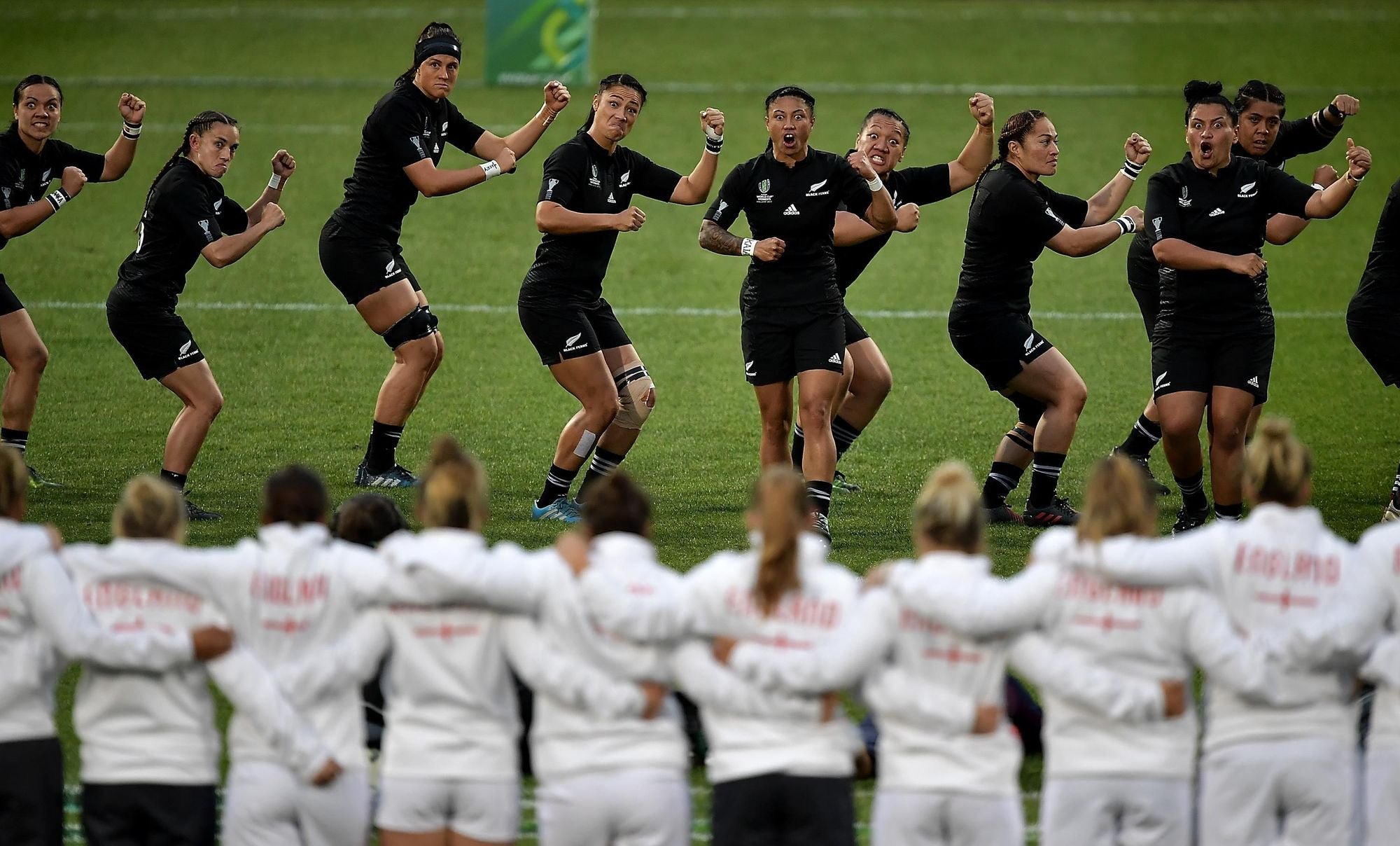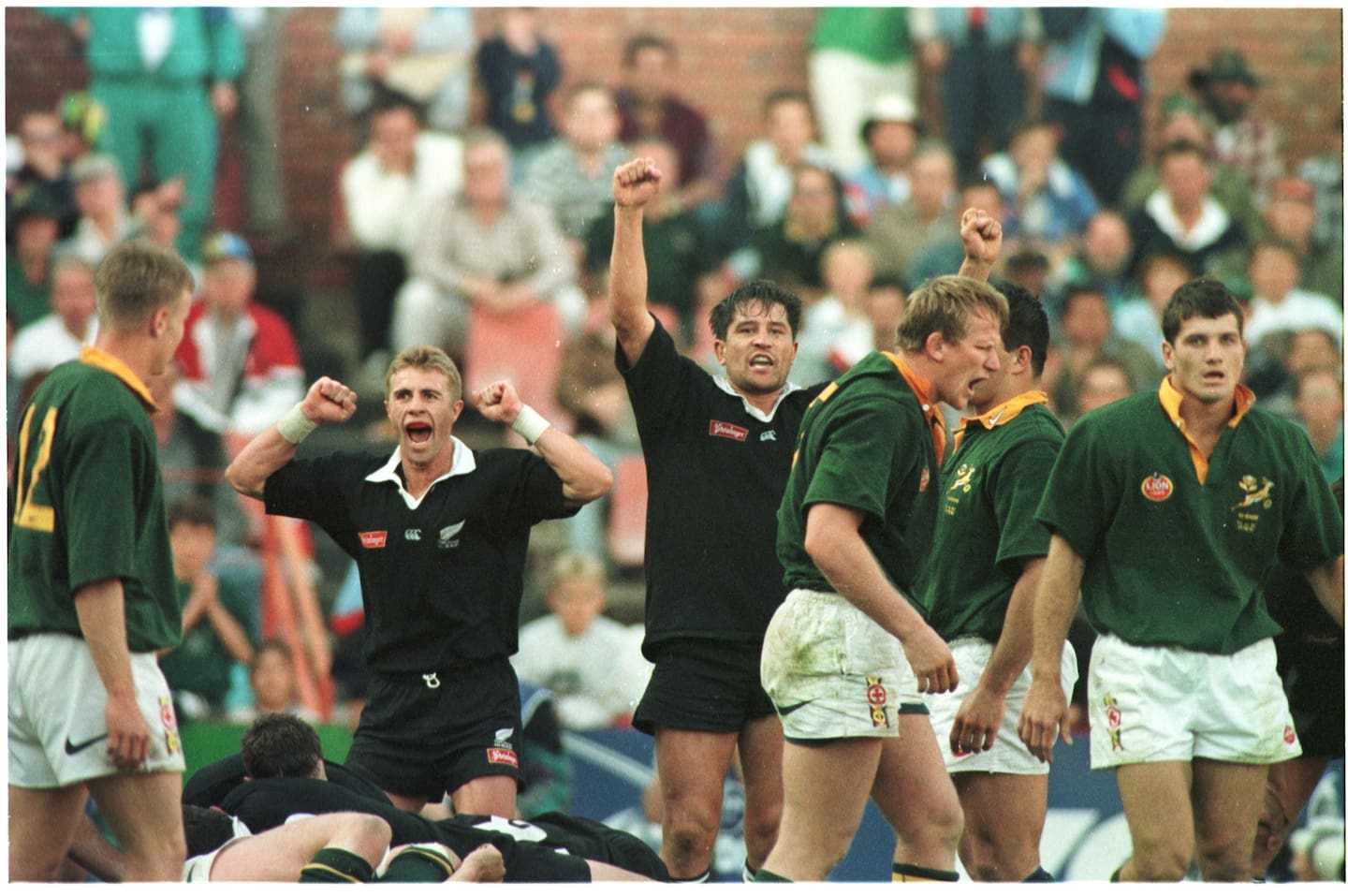The Black Ferns: Aotearoa’s Champions of the Women’s Game

The Black Ferns, New Zealand’s women’s rugby team, are among the most successful sides in world sport. With a record six Women’s Rugby World Cups, they have inspired generations, carried Pacific and Māori culture onto the global stage, and helped turn women’s rugby into a prime-time spectacle.
From Pioneers to Trailblazers
Women’s rugby has been played in New Zealand since the 1970s, but it wasn’t until 1989 that the first official national team was formed. They played the visiting Pacific Coast Grizzlies, marking the start of a Test era.
At the inaugural Women’s Rugby World Cup in 1991, New Zealand topped their pool before losing a muddy semi-final 7–0 to the USA. They finished joint third with France, showing early signs of greatness. Funding challenges meant they missed the 1994 tournament, but their return in 1998 reshaped the women’s game.

The First Golden Era (1998–2010)
Between 1998 and 2010, the Black Ferns won four consecutive World Cups. They beat the USA in Amsterdam (1998), England in Barcelona (2002), England again in Edmonton (2006), and edged them in a classic at Twickenham (2010).
This run cemented the Black Ferns as the game’s powerhouse, blending set-piece steel with free-flowing attacking rugby. Rivalries with England and France grew fierce, and New Zealand’s style of fast, fearless, and physical play became the benchmark.

A Wake-Up Call in 2014
The 2014 tournament in France was a shock. Defeated by Ireland in pool play, the Black Ferns missed the semi-finals for the first and only time, finishing fifth. It exposed how quickly the international game was improving.
The disappointment spurred action, and in 2018, New Zealand Rugby introduced professional contracts for the women’s 15s game. This was transformative for player welfare, preparation, and performance.
A Second Surge: 2017 and 2022
In 2017, a refreshed Black Ferns side lit up Belfast, defeating England 41–32 in one of the greatest women’s finals. It was a victory of ambition, speed, and precision.
Five years later, at a World Cup delayed by Covid and staged in New Zealand in 2022, the Black Ferns delivered a sporting fairy tale. In front of a world-record Eden Park crowd, they edged England 34–31 in a pulsating final. The atmosphere was electric, the rugby audacious, and the victory symbolic of women’s rugby’s arrival in the mainstream.

Professional Pathways and Aupiki
The professional contracts of 2018 were a turning point. Combined with the Super Rugby Aupiki competition, they created a genuine high-performance system. Today’s Black Ferns train and recover as full-time athletes, and there are pathways from school to provincial rugby, to Aupiki, and into the national side.
World Cup Record
Here are the Black Ferns Women’s Rugby World Cup champion years.
|
1998 (Netherlands) |
🏆 Champions |
Beat USA 44–12 (Final) |
First title |
|
2002 (Spain) |
🏆 Champions |
Beat England 19–9 (Final) |
Back-to-back titles |
|
2006 (Canada) |
🏆 Champions |
Beat England 25–17 (Final) |
Third consecutive win |
|
2010 (England) |
🏆 Champions |
Beat England 13–10 (Final) |
Four in a row |
|
2017 (Ireland) |
🏆 Champions |
Beat England 41–32 (Final) |
Free-flowing classic |
|
2021 (NZ, played 2022) |
🏆 Champions |
Beat England 34–31 (Final) |
Record crowd at Eden Park |

Rivalries and Style
The Black Ferns’ enduring rivalry with England’s Red Roses is rugby’s most defining. England, with professional contracts and Six Nations dominance, are often favourites, yet New Zealand has beaten them in five finals.
The Black Ferns’ style remains their hallmark: pace, risk-taking, and relentless attack. They ask opponents to keep up with quick ruck ball, slick handling, and constant width. In 2022, coach Wayne Smith gave players freedom to play at speed, producing some of the most thrilling rugby ever seen.

Why the Black Ferns Matter
The Black Ferns are more than champions; they are trailblazers, they lifted women’s rugby into the spotlight, and inspired young New Zealanders to dream bigger.
With six world titles, they are the most decorated team in Rugby World Cup history. As rivals improve and the global game grows, the challenge will be fiercer, and that is exactly how the Black Ferns like it.


0 comments




